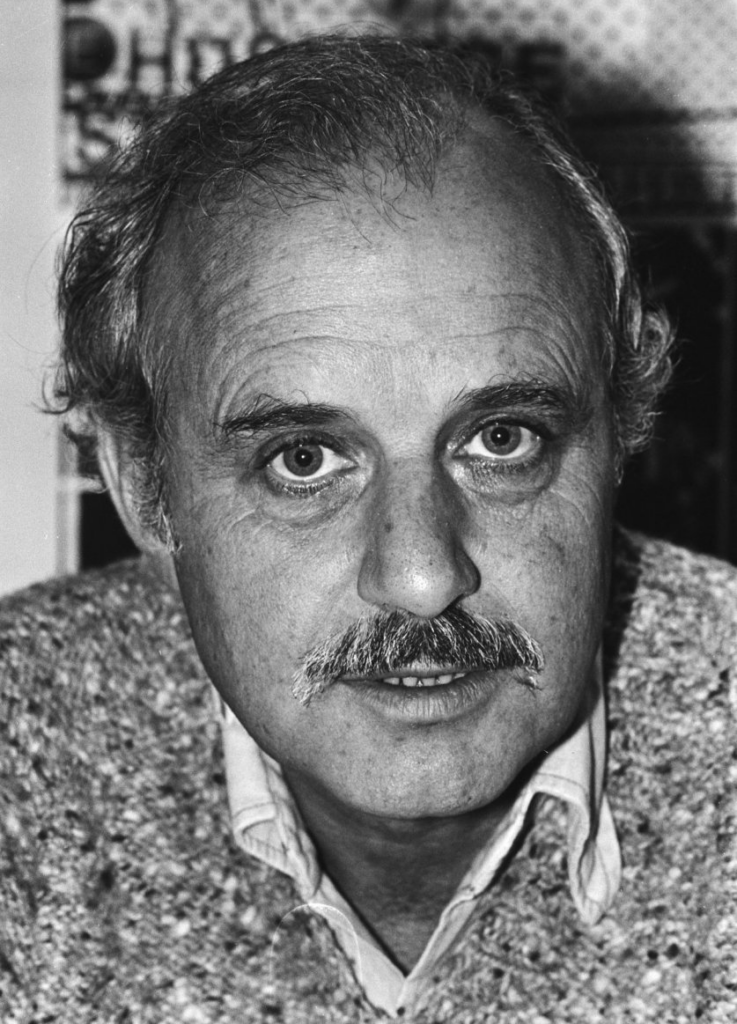The name Greenpeace is today synonymous with the environmental movement. It evolved from a small organization to an international powerhouse largely because of one man, David McTaggart, through what we might call the perfect storm.

David McTaggart was born in Vancouver, British Columbia, on June 24, 1932 (died 2001). He was a talented athlete, spending his youth skiing, golfing and playing racquet sports. He excelled especially at badminton, winning the Canadian national championship three times. He quit high school to begin a construction business that became highly successful first in Canada, then in the U.S. However, when an accident on one of his construction sites caused an employee’s serious injury, McTaggart despaired of his role in the matter; he abandoned his business life, sacrificed much of his wealth to compensate for the accident, and left his family to “find out about himself”—the first phase of the perfect storm.
The storm continued building as he was roaming the South Pacific in his sailboat during 1972. He answered an ad seeking volunteers to protest French above-ground nuclear tests at the uninhabited atoll, Mururoa. He was mad, not so much because of the tests themselves, but because of the audacity of the government to declare a portion of the ocean off-limits. McTaggart renamed his boat the Greenpeace III, after the group that placed the ad, and headed to Mururoa. He anchored in the path of the expected test plume. In response, the French navy rammed his boat and towed him to harbor, claiming they had rescued him. The next year, he was back, and the French were more aggressive, boarding his boat and beating him badly. The government again claimed rescue, but a smuggled film of the altercation added to the storm when it was broadcast. McTaggart successfully sued France, and in 1974, the embarrassed French government halted above-ground testing (and eventually stopped all nuclear testing).

McTaggart was energized and began building Greenpeace. Although the organization had several offices in Europe and the U.S., it operated as a loose collection of local groups. McTaggart united the individual branches into Greenpeace International and led its expansion throughout Europe and North America. In 1979, he became its president and CEO, roles he retained until retiring in 1991.
Under his leadership, Greenpeace became an international juggernaut of environmental action. He led efforts to protect whales, both through direct confrontations with Japanese whaling vessels, for which Greenpeace has become famous (or perhaps infamous) and through negotiations with the International Whaling Commission, leading to the creation of the Southern Ocean Whale Sanctuary in 1994. He also led Greenpeace in successful campaigns to establish Antarctic treaties prohibiting mining and to reduce ocean pollution (especially of nuclear wastes).
McTaggart’s personality and methods did not suit everyone. He was intensely private as an individual, but intensely confrontational as an environmentalist. He understood the value of publicity and made sure that all Greenpeace’s actions were filmed and widely shared. When the organization he had nurtured became too large and staid for his style, Greenpeace and McTaggart went separate ways.
He moved to the small town of Paciano in central Italy, to farm organic olives. He created a new organization, the 3rd Millennium Foundation, where he continued his environmental work on a smaller scale, emphasizing local improvements and projects in the Caribbean. An automobile accident ended his life in 2001.
References:
3rd Millennium Foundation. About Us—Our History. Available at: http://www.3mf.org/about_us/index.html. Accessed March 3, 2020.
Brown, Paul. 2001. David McTaggart, Campaigner who led from the front in making Greenpeace a worldwide organization. The Guardian, 25 Mar 2001. Available at: https://www.theguardian.com/news/2001/mar/26/guardianobituaries.paulbrown. Accessed March 3, 2020.
Greenpeace. David McTaggart 1932-2001. Available at: https://wayback.archive-it.org/9650/20191112213722/http://p3-raw.greenpeace.org/international/en/about/history/founders/david-mctaggart/. Accessed March 3, 2020.
Lewis, Paul. 2001. David McTaggart, a Builder of Greenpeace, Dies at 69. The New York Times, March 24, 2001. Available at: https://www.nytimes.com/2001/03/24/world/david-mctaggart-a-builder-of-greenpeace-dies-at-69.html. Accessed March 3, 2020.
